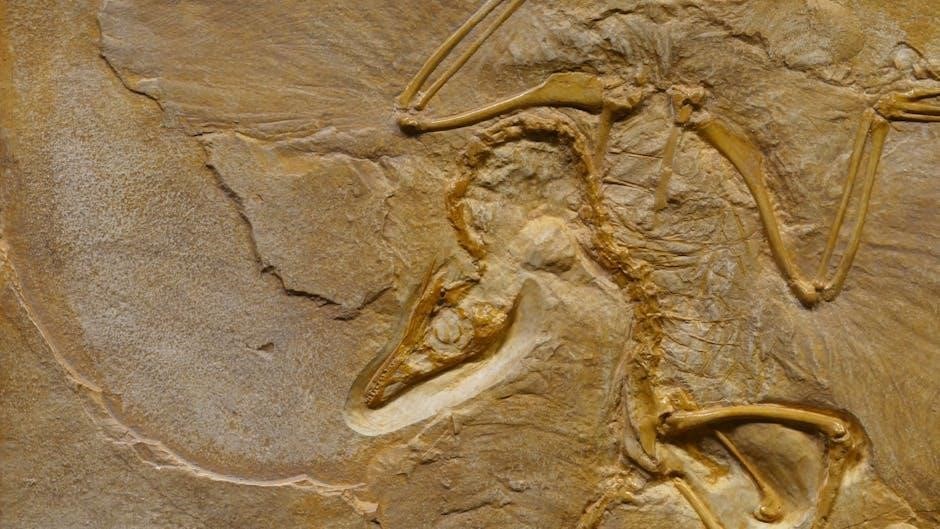This comprehensive AQA GCSE Geography Revision Guide covers Physical and Human Geography topics‚ offering clear study notes‚ case studies‚ and practice questions to enhance exam preparation and understanding.
1.1 Overview of the AQA Specification
The AQA GCSE Geography specification is structured to cover a wide range of topics‚ including Natural Hazards‚ Climate Change‚ Water and Carbon Cycles‚ Urbanisation‚ Population‚ and Environmental Management. It is divided into Physical and Human Geography components‚ with a strong emphasis on geographical skills and fieldwork. The specification is designed to develop critical thinking‚ data analysis‚ and evaluation skills. It aligns with the latest educational standards‚ ensuring students gain a comprehensive understanding of key concepts and their real-world applications. Regular updates ensure relevance and engagement with contemporary issues.
1.2 Importance of Structured Revision
Structured revision is essential for mastering the AQA GCSE Geography syllabus‚ helping students organize their study time effectively. By breaking down topics into manageable sections‚ learners can focus on key concepts‚ case studies‚ and skills. Regular revision reinforces understanding‚ improves retention‚ and enhances exam performance. Using resources like flashcards‚ past papers‚ and interactive tools ensures active engagement and confidence-building. A structured approach also allows students to identify weaknesses‚ address gaps in knowledge‚ and develop strategies for tackling complex questions. Consistency and planning are key to achieving success in the AQA GCSE Geography exams.

Physical Geography Topics
Covers Natural Hazards‚ Climate Change‚ and Water and Carbon Cycles‚ providing clear notes‚ case studies‚ and exam-style questions to aid understanding and exam preparation.
2.1 Natural Hazards (Volcanoes‚ Earthquakes‚ etc.)
This section explores the causes‚ impacts‚ and management of natural hazards such as volcanoes and earthquakes. It includes monitoring techniques‚ eruption prediction methods‚ and case studies on human and environmental impacts. Students learn how to evaluate the effectiveness of mitigation strategies and understand why people choose to live in hazardous areas. The guide provides structured notes‚ diagrams‚ and practice questions to help students master these topics and apply their knowledge in exams. Clear examples and real-world applications ensure a deep understanding of natural hazards and their geographical significance.
2.2 Climate Change and Its Impacts
This section examines the causes and effects of climate change‚ focusing on global warming‚ extreme weather events‚ and rising sea levels. It explores mitigation strategies‚ such as reducing greenhouse gas emissions‚ and adaptation measures‚ like flood defenses. Case studies highlight the socio-economic impacts of climate change‚ emphasizing vulnerable regions. The guide also includes practice questions on evaluating mitigation versus adaptation and understanding recent extreme weather events. Key concepts are supported by clear explanations‚ diagrams‚ and real-world examples to enhance student understanding and exam readiness.
2.3 Water and Carbon Cycles
This section explores the water and carbon cycles‚ essential processes sustaining life on Earth. The water cycle involves evaporation‚ condensation‚ precipitation‚ and collection‚ while the carbon cycle includes carbon exchange between the atmosphere‚ oceans‚ and living organisms. Key processes like photosynthesis‚ respiration‚ and decomposition are explained. The guide highlights human impacts‚ such as deforestation and fossil fuel combustion‚ on these cycles. Clear diagrams and examples‚ including case studies‚ help students understand these critical systems and their role in shaping ecosystems and climate regulation.

Human Geography Topics
This section covers urbanisation‚ population dynamics‚ migration‚ and environmental management‚ exploring how human activities shape landscapes and interact with economic and social processes‚ supported by case studies.
3.1 Urbanisation and Economic Development
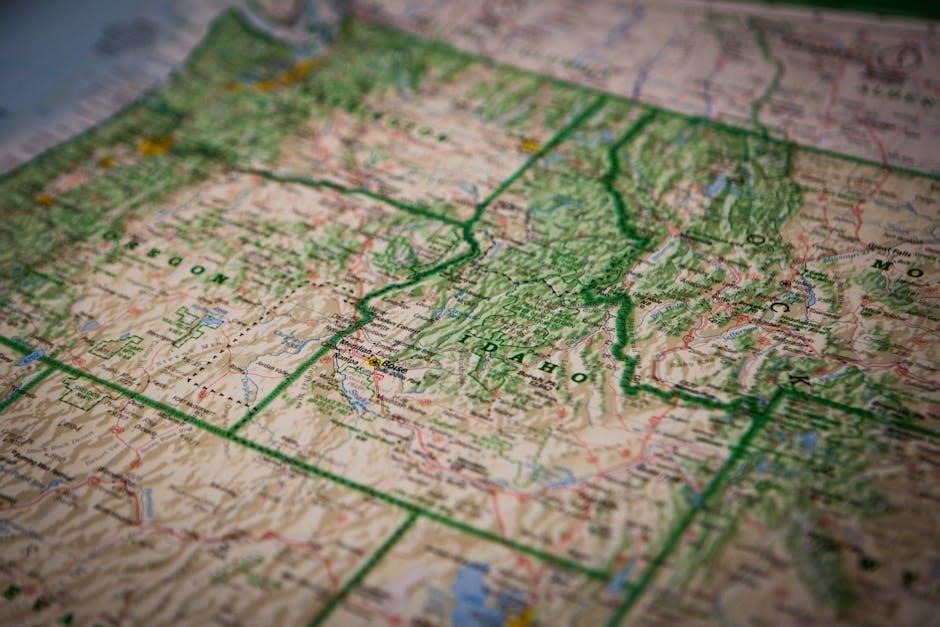
Urbanisation is a key driver of economic development‚ transforming rural areas into vibrant hubs. Cities attract investment‚ fostering innovation and job creation‚ which in turn fuels growth. Megacities‚ such as Tokyo and New York‚ exemplify this dynamic. However‚ rapid urbanisation often leads to challenges like overcrowding‚ inequality‚ and strain on resources. This section explores these complexities‚ using case studies to illustrate how urbanisation shapes economies and societies. Practice questions and revision tools help students grasp these concepts effectively for their exams.
3;2 Population and Migration Patterns
Population dynamics and migration patterns are crucial in understanding human geography. Factors such as natural increase‚ birth rates‚ and death rates shape population growth. Migration‚ driven by push and pull factors like economic opportunities or conflict‚ influences global population distribution. Case studies‚ such as urban-rural migration in the UK or international movements to developed nations‚ highlight these trends. This section provides insights into demographic transitions and their impacts on societies‚ supported by practice questions to reinforce understanding for AQA GCSE Geography exams.
3;3 Environmental Management
Environmental management focuses on strategies to address climate change‚ conservation‚ and sustainable development. Key topics include renewable energy‚ deforestation solutions‚ and pollution control. Case studies explore how human activities impact ecosystems‚ emphasizing the importance of balanced resource use. This section provides insights into global agreements like the Paris Accord and local initiatives‚ offering practical examples for effective environmental stewardship. Practice questions help students apply theoretical knowledge to real-world scenarios‚ ensuring a deep understanding of environmental management for AQA GCSE Geography exams.
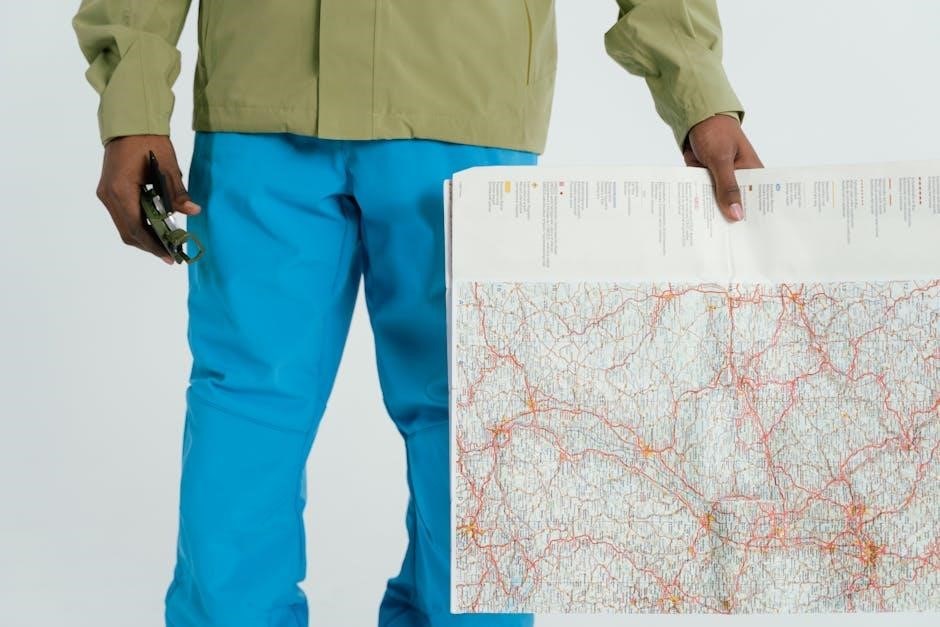
Geographical Skills and Fieldwork
Geographical skills and fieldwork are essential for AQA GCSE Geography. This section covers data collection‚ analysis techniques‚ and fieldwork investigations‚ providing practical guidance for exam success and report writing.
4.1 Data Collection and Analysis Techniques
Data collection and analysis are crucial skills in AQA GCSE Geography. Techniques include fieldwork measurements‚ such as river discharge and soil sampling‚ alongside secondary data interpretation. Students learn to process and present data effectively using graphs‚ charts‚ and GIS mapping. Practical exercises and past paper questions help refine these skills‚ ensuring confidence in handling data during exams and fieldwork investigations. These methods are vital for producing accurate and comprehensive geographical reports.
4.2 Fieldwork Investigations and Reports
Fieldwork investigations are a key component of AQA GCSE Geography‚ enabling students to collect primary data and apply geographical skills. Students learn to plan‚ conduct‚ and report on fieldwork‚ such as river studies or urban surveys. Data collection techniques‚ including measurements and observations‚ are documented and analyzed. Reports require clear presentation of findings‚ using graphs and maps. Practical investigations help students develop critical thinking and problem-solving abilities‚ preparing them for exam questions and real-world geographical applications.
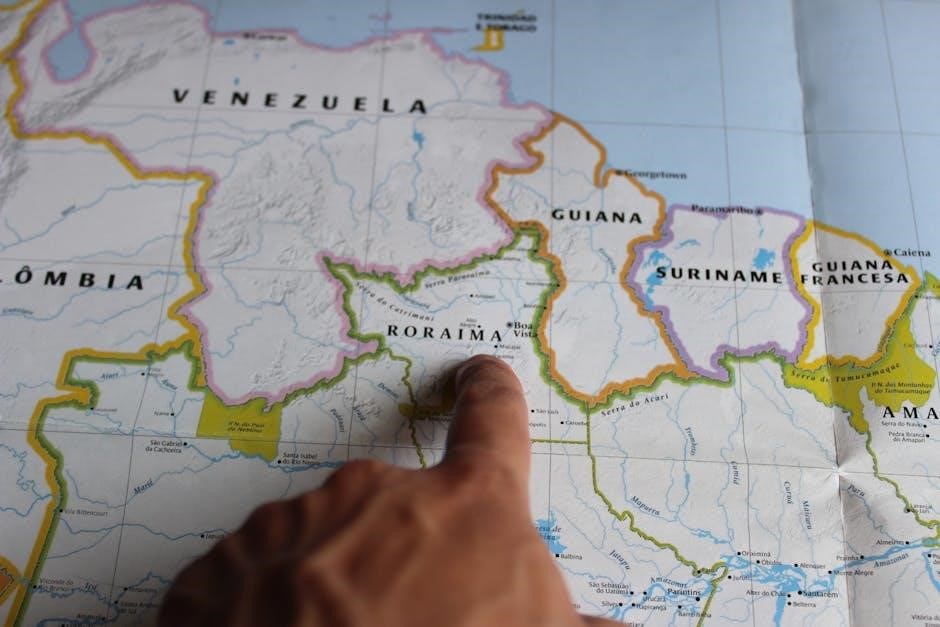
Exam Preparation Strategies
Effective exam preparation involves practicing past papers and using mark schemes to refine answering techniques. Regular revision sessions and utilizing online resources can enhance understanding and retention. Time management during exams is essential for completing all questions.
5.1 Practicing Past Papers and Mark Schemes
Practicing past papers and mark schemes is crucial for AQA GCSE Geography exam preparation. It helps students understand the exam format‚ identify strengths and weaknesses‚ and refine answering techniques. Past papers provide real-life examples of questions‚ enabling students to familiarize themselves with the types of questions and the required depth of answers. Mark schemes offer detailed insights into what examiners expect‚ allowing students to align their responses with assessment criteria. Regular practice with past papers enhances time management and improves the ability to address questions effectively under exam conditions. Utilizing these resources ensures students are well-prepared for the challenges of the exam. Additionally‚ tools like Quizlet and Study Mind offer interactive ways to revise and test knowledge‚ reinforcing understanding of key concepts and case studies. By consistently practicing past papers‚ students can build confidence and develop a strategic approach to tackling complex questions‚ ultimately leading to better exam performance.
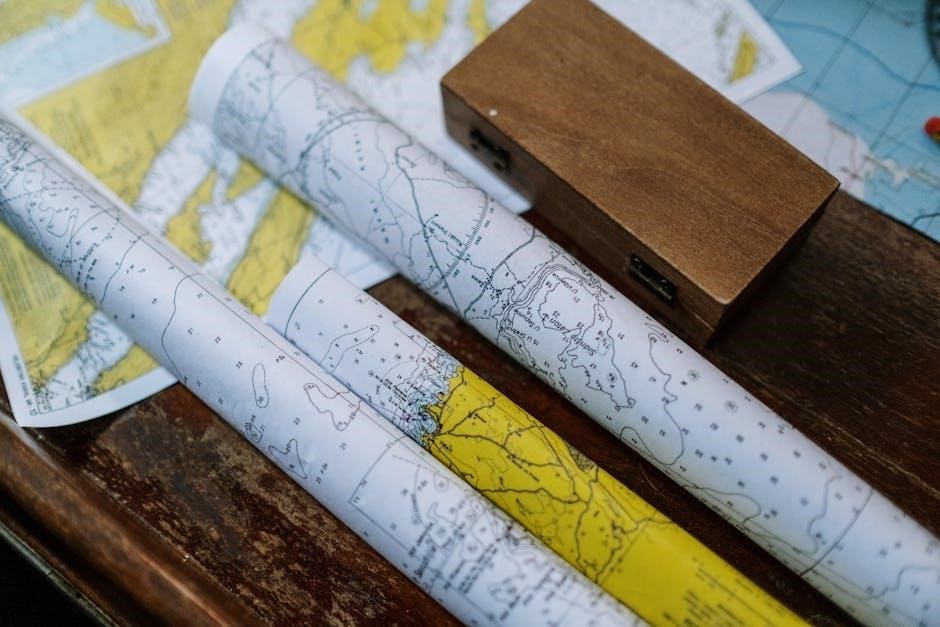
5.2 Effective Use of Revision Resources
Maximizing revision resources is essential for AQA GCSE Geography success. Utilize textbooks like the CGP Revision Guide for clear notes and case studies. Online platforms such as Quizlet offer interactive flashcards and study sets aligned with the AQA specification. Additionally‚ websites like Study Mind provide practice questions and mark schemes to refine understanding. These tools complement structured revision‚ ensuring comprehensive coverage of both Physical and Human Geography topics; Regular use of these resources enhances retention and exam readiness‚ helping students achieve their full potential. They are designed to support independent study and classroom learning effectively.

Revision Resources and Tools
Explore recommended textbooks like the CGP Revision Guide‚ offering clear notes and case studies. Utilize online platforms such as Quizlet for interactive flashcards and Study Mind for practice questions with mark schemes to enhance learning and retention.
6.1 Recommended Textbooks and Guides
The CGP Revision Guide is a top choice‚ offering clear study notes‚ case studies‚ and practice questions. It covers both Physical and Human Geography topics‚ with a glossary for key terms. Priced at £5.95 online‚ it’s a cost-effective resource. Additionally‚ the GCSE 9-1 Geography AQA Revision Guide is praised for its student-friendly approach‚ aligning perfectly with the specification. These guides provide structured content‚ making them essential for focused revision and exam success.
6.2 Online Platforms for Interactive Learning
Quizlet and Study Mind are excellent online platforms for AQA GCSE Geography revision. Quizlet offers curriculum-aligned study sets and flashcards for topics like natural hazards and water cycles. Study Mind provides practice questions with mark schemes‚ helping students assess their understanding. Additionally‚ interactive tests based on past papers boost exam skills‚ focusing on fieldwork and geographical concepts. These platforms enhance learning through engaging‚ structured resources‚ making revision more effective and enjoyable for students preparing for their exams.

Exam Tips and Techniques
Highlight key terms‚ manage time effectively‚ and use past papers to familiarize yourself with question formats. Practice structuring answers clearly and support them with relevant evidence.
7.1 Answering Structured Questions Effectively
To excel in AQA GCSE Geography exams‚ it’s crucial to understand how to tackle structured questions. Always read the question carefully and highlight key terms to focus your response. Plan your answer using bullet points or mind maps to ensure clarity and organization. Use the mark scheme as a guide to identify the expected content and structure. Practice answering questions within timed conditions to improve time management. Start with a clear introduction‚ followed by detailed explanations supported by examples and case studies. Avoid waffling and stick to the point to maximize marks. Finally‚ review your answer to ensure it meets the question’s requirements and is free of errors.
7.2 Time Management During the Exam
Effective time management is crucial during the AQA GCSE Geography exam. Allocate time evenly to each question‚ ensuring you leave enough for higher-mark questions. Read each question carefully to understand what is being asked. Plan your response briefly before writing to stay focused. Prioritize questions you are most confident about first to secure marks early. Use the allocated time wisely‚ avoiding spending too long on a single question. Keep an eye on the clock and review your answers if time permits to correct errors or add details.
This AQA GCSE Geography Revision Guide provides a thorough overview of key topics‚ revision strategies‚ and exam techniques to help students excel. By focusing on structured study methods‚ practicing past papers‚ and utilizing recommended resources‚ students can build confidence and achieve their best. The guide emphasizes the importance of understanding both Physical and Human Geography‚ alongside essential geographical skills. With careful preparation and effective time management‚ students will be well-equipped to tackle the exam successfully and reach their full potential in AQA GCSE Geography.










